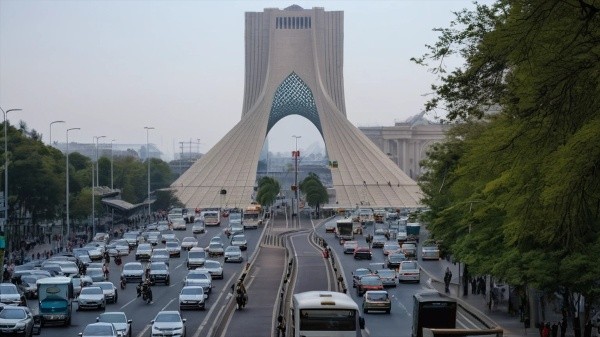Iran’s Plan to Strike Back Against the U.S.
Iran’s Military Preparations Following U.S. Attacks
Loading...

Iran’s Revolutionary Guard Corps (IRGC) has warned that Tehran’s retaliation over the assassination of Hamas leader Ismail Haniyeh may only come after a long wait, according to Reuters.
Iran's Cautious Response to the Killing of Hamas Leader
In a recent statement, Iran's Revolutionary Guard Corps (IRGC) indicated that the anticipated retaliation for the assassination of Hamas leader Ismail Haniyeh may take longer than expected. This announcement comes in the wake of heightened tensions following Haniyeh's death in Tehran on July 31, 2024, shortly after he attended the inauguration of Iranian President Masoud Pezeshkian.
The Context of Haniyeh's Assassination
Haniyeh was killed in an airstrike that occurred just hours after Israel reportedly targeted a top Hezbollah commander in Beirut. While Israel has neither confirmed nor denied involvement in Haniyeh's assassination, Iranian officials have accused Israel of orchestrating the strike on Iranian soil, which they view as a significant provocation. The IRGC has vowed to deliver a "harsh punishment" to Israel for this act, raising fears of a potential escalation into broader conflict in the region.
IRGC's Strategic Delay
Alimohammad Naini, spokesperson for the IRGC, emphasized that "time is in our favor," suggesting that Iran's response will be calculated and deliberate rather than immediate. He noted that Iranian leaders are currently assessing the situation and that the forthcoming retaliation may differ from previous military operations. This cautious approach reflects a strategic decision to weigh the implications of their actions carefully, especially given the complex geopolitical landscape.
International Reactions and Diplomatic Efforts
The assassination has sparked global concern about the potential for an all-out war between Israel and Iran. In response, the United States has urged its allies with ties to Iran to encourage de-escalation. Secretary of State Antony Blinken reiterated the U.S. commitment to Israel's defense while also calling for restraint from all parties involved, including Israel. Blinken's diplomatic efforts are aimed at facilitating a ceasefire between Israel and Hamas, which has been embroiled in conflict since the militant group's surprise attack on Israel on October 7, 2023.
The Human Cost of Ongoing Conflict
The hostilities between Israel and Hamas have resulted in significant casualties, with reports indicating that around 1,100 people have died in Israel and over 40,000 in Gaza since the conflict reignited. The humanitarian crisis continues to escalate, with nearly 93,000 individuals reported injured in Gaza alone. Amidst this turmoil, Naini expressed Tehran's support for any initiatives that could lead to an end to the war in Gaza, although he criticized U.S. actions as insincere and accused Washington of being complicit in the conflict.
The Path Forward
As Iran navigates its response to Haniyeh's assassination, the IRGC's leadership appears divided on the appropriate course of action. While some factions advocate for a direct military strike against Israel, others, including President Pezeshkian, are reportedly seeking to avoid an all-out war. This internal debate highlights the complexities of Iranian politics and the challenges of responding to external threats while managing domestic and regional expectations.
In conclusion, while Iran has vowed to retaliate for the killing of Ismail Haniyeh, the IRGC's recent statements suggest a strategic delay in response. As the situation unfolds, the international community remains watchful, hoping for a resolution that can prevent further escalation and loss of life in an already volatile region.
Editor
Iran’s Military Preparations Following U.S. Attacks
Troops remain in five strategic locations, raising fears of renewed tensions and long-term occupation.
Opposition forces have taken control of the capital after a significant offensive. Here is how it unravelled.
